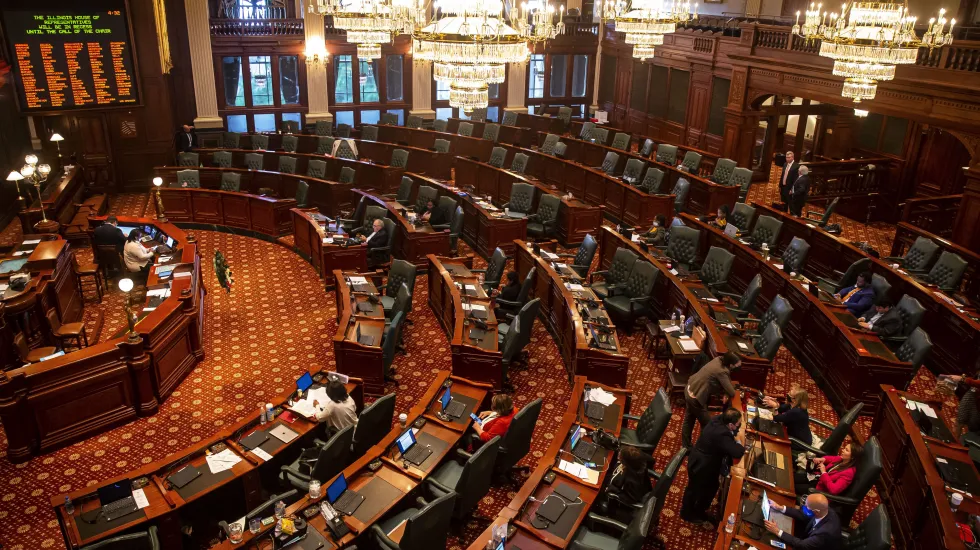
Few Illinoisans realize it, but when the state created an income tax, it promised it would send a portion of your income tax dollars back to the community where you live. This revenue makes up the Local Government Distributive Fund (LGDF), which has always been distributed to municipalities and counties based on population.
Every local government depends on LGDF revenue to provide essential services, including police and fire protection, road repairs and maintenance, flood prevention and infrastructure investments.
SEND LETTERS TO: letters@suntimes.com. We want to hear from our readers. To be considered for publication, letters must include your full name, your neighborhood or hometown and a phone number for verification purposes. Letters should be a maximum of approximately 350 words.
LGDF money promised to our communities amounted to 10% of all annual income tax collections from 1993 to 2011. However, the state has reduced the amount it sends back to your community to just over 6% today, nearly a 40% reduction over the past decade.
Let us state the obvious: You’re paying more but getting less in return in your local community. How much less? LGDF revenue can account for between 10% to 20% of a municipality’s operating budget, meaning these reductions could amount to hundreds of thousands or even millions of dollars in lost revenue annually for your community, depending on its population.
Since local governments can’t rely on sufficient, stable funding through LGDF, many have had to find other sources of revenue. In some cases, that includes property tax increases, which are already high across Illinois.
The Illinois General Assembly has an opportunity to lessen the reliance on property taxes in general by returning LGDF to the promised 10%, or at minimum the 8% included in recent legislation by Rep. Anthony DeLuca, D-Chicago Heights, and Sen. Laura Murphy, D-Des Plaines. The General Assembly needs to hear from their constituents that lawmakers should endorse this bipartisan compromise plan before the legislative session ends on April 8.
The timing is right. The state’s financial health has improved significantly in recent years, resulting in a reduced bill backlog, upgraded credit ratings and a $1.7 billion surplus. There is no better time to prioritize funding for local governments that have endured cuts for more than a decade.
Municipalities are required to balance our budgets every year. All of our communities make tough decisions about how to continue meeting the needs of residents and businesses with fewer resources. Cutting costs helped cover lost revenue in the past, but municipalities and counties must now pay for new unfunded state mandates and skyrocketing public safety pension costs.
Decatur Mayor Julie Moore Wolfe, president, Illinois Municipal League
Palos Park Mayor John F. Mahoney, chair, Metropolitan Mayors Caucus
Gas, transit card giveaway crosses the line
There’s no one more progressive/liberal than I am, but the mayor’s current scheme to give away gas and transit cards crosses the line.
It’s hers only if she is funding that grossly political move with her own money as Willie Wilson did. No-brainer!
Should our City Council somehow pass this lark, the gas card lottery should include only city residents who have purchased current vehicle stickers. All transit pass holders should be eligible. I ask council members to continue to be mindful of our city’s precarious financial position.
Dwain Thomas, South Loop







